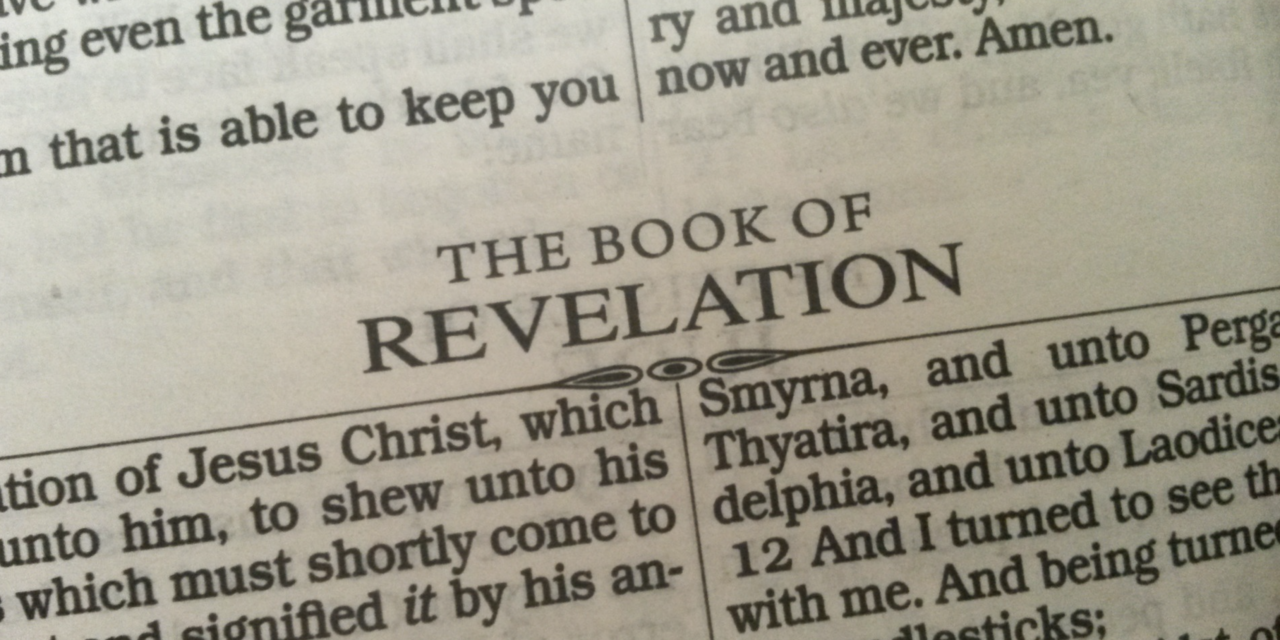What is Revelation? Or what is meant by the word revelation? Is that different from the book that is called Revelation in our Bible?
The Greek word ἀποκάλυψις (apokalupsis –apocalypse) is where we get our English word revelation. It means to reveal, uncover, or unveil. It is used in the context of God making Himself and His will known. The naming of the book of Revelation is in line with that purpose: God gave many revelations to the apostle John, likely during John’s exile on the Island of Patmos. There are three kinds of revelation:
General Revelation
All Creation displays God’s glory. God causes the sun to shine and rivers to flow. The ocean is alive with the life He has created. Mountains and valleys catch our breath. The beautiful smell of a newborn baby makes our heart skip a beat; many beats. The animal kingdom is as diverse and beautiful as the plant kingdom. Who can deny there is an Intelligent Creator? Not even the hardest atheist can deny love is a real force that changes everything it touches. Love is a Person! And He is reaching for us every single day.
Scripture explains general revelation: “The heavens declare the glory of God; the skies proclaim the work of his hands. Day after day they pour forth speech; night after night they reveal knowledge. They have no speech, they use no words; no sound is heard from them. Yet their voice goes out into all the earth, their words to the ends of the world” (Psalm 91:1-4). “The Lord has made his salvation known and revealed his righteousness to the nations” (Psalm 98:2)
Special Revelation
This is the inscripturated Word of God, otherwise known as the Bible, or Scripture. The Word of God is absolute, inerrant, unchanging truth. In God’s Word, He provided us with His plan for humanity, His covenantal history, instructions for living, many precious promises, and many prophetic declarations. Of these prophetic declarations, many have already been fulfilled, many have multiple fulfillments, and many are still waiting for their fulfillment. The Word of God was written under the direct inspiration of the Holy Spirit. He used human instruments to record His Word. His word is alive and active and powerful (Heb 4:12).
Gods gave the Israelites the Torah through Moses, “Then the Lord your God will make you most prosperous in all the work of your hands and in the fruit of your womb, the young of your livestock and the crops of your land. The Lord will again delight in you and make you prosperous, just as he delighted in your ancestors, if you obey the Lord your God and keep his commands and decrees that are written in this Book of the Law and turn to the Lord your God with all your heart and with all your soul” (Deut 30:9-11). The noun, Torah, is the name of the first five books of the OT. While the Hebrew word, torah, translated as ” the teachings” of God.
Other examples of Scripture as special revelation: “I gave them my decrees and made known to them my laws, by which the person who obeys them will live” (Ezekiel 20:11). “All Scripture is God-breathed and is useful for teaching, rebuking, correcting and training in righteousness” (2Tim 3:16).
Specific Revelation
Specific revelation is direct and personal revelation. It includes all the revelation given through the Holy Spirit, directly to the believer, as God makes Himself experientially known to us, just as Jesus promised, “The one who loves me will be loved by my Father, and I too will love them and show myself to them” (John 14:21b). Specific revelation is to instruct our hearts, encourage us, build us up, give direction and strategy for every kind of situation we face in life. It includes but is not limited to the revelation gifts Paul lists in 1Corinthians 12:7-10. It is called “specific” revelation because it is specific to a person or group of people, a situation, a geography, or a period of time.
The book of Acts is full of examples of believers receiving and acting upon specific revelation. Here are a few:
- The Holy Spirit revealed to Peter that a couple in the community of believers had lied to him (Acts 5:1-5).
- An angel spoke directions to Philip, and then the Holy Spirit spoke more directions for a ministry opportunity. This is prophetic revelation working with discernment. Philip knew the difference between the angel and the Holy Spirit (Acts 8:26-30).
- A disciple named Ananais is given specific instructions from the Holy Spirit, “Go to the house of Judas on Straight Street and ask for a man from Tarsus named Saul, for he is praying” (Acts 9:11);
- A prophet named Agabus, “through the Spirit predicted a severe famine” and so preparations were made in advance to save many people (Acts 11:28).
Our lives should look like the book of Acts. The same Holy Spirit who was with the first-generation disciples is with us to fill us, lead us, guide us, provide for us, and fully empower us to fulfill all God’s will. We are to live by the same prophetic revelation as the early disciples, with the same miracles and same city-changing evangelism. God gave us the Book of Acts as the example of the normal Christian life.





